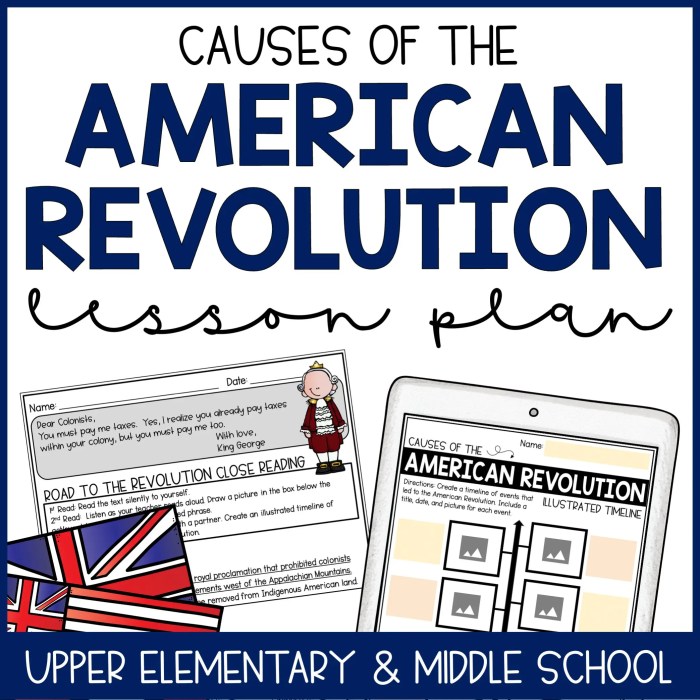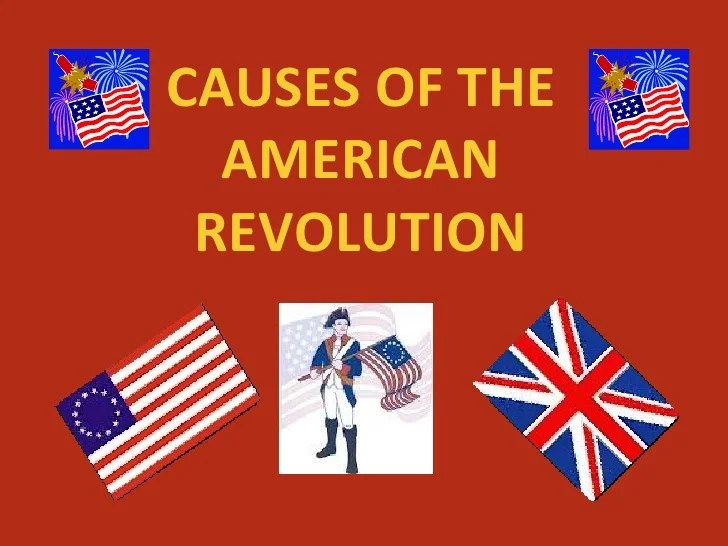Causes of american revolution worksheet – The Causes of the American Revolution Worksheet delves into the intricate tapestry of events and ideas that culminated in the American Revolution, a pivotal moment in world history. This worksheet provides a comprehensive exploration of the economic, political, social, and intellectual factors that fueled colonial discontent and ultimately led to the birth of a new nation.
The worksheet begins by examining the economic policies and political restrictions imposed by the British government, which sowed seeds of resentment among the colonists. It then delves into the profound influence of Enlightenment ideas on the colonial mindset, particularly the concept of natural rights and the social contract theory.
Colonial Grievances
The American Revolution was sparked by a series of grievances that colonists held against British rule. These grievances included economic, political, and social restrictions.
Economic Policies
- Mercantilism: British economic policies aimed to control colonial trade and resources for the benefit of the mother country.
- Navigation Acts: These laws restricted colonial trade to British ships and merchants, limiting colonial economic growth.
- Taxation without Representation: Colonists resented being taxed by the British Parliament without having any representation in the government.
Political and Social Restrictions
- Royal Governors: British governors appointed by the king had significant power over colonial affairs, limiting colonial self-government.
- Limited Suffrage: Only property-owning white men were allowed to vote in colonial elections.
- Established Church: The Church of England was the official religion of the colonies, limiting religious freedom.
Taxation
- Sugar Act (1764): This act imposed a tax on imported sugar, which was a major commodity for colonists.
- Stamp Act (1765): This act required a tax on all printed materials, including newspapers and legal documents.
- Townshend Acts (1767): These acts imposed taxes on various goods imported into the colonies.
Intellectual Influences
The American Revolution was also influenced by the intellectual ideas of the Enlightenment, which emphasized reason, individual rights, and limited government.
Enlightenment Ideas
- Natural Rights Philosophy: The idea that all people are born with certain fundamental rights, such as life, liberty, and property.
- Social Contract Theory: The idea that governments are created by the consent of the governed and are responsible for protecting the rights of citizens.
- Separation of Powers: The idea that the government should be divided into separate branches with distinct powers to prevent tyranny.
John Locke
John Locke was a prominent Enlightenment philosopher whose ideas had a significant impact on American revolutionaries. Locke argued that individuals have natural rights and that governments are only legitimate if they protect these rights.
Catalyst Events

Several key events escalated tensions between colonists and the British government and ultimately led to the American Revolution.
Boston Massacre (1770)
A clash between British soldiers and colonists in Boston resulted in the deaths of five colonists, sparking outrage and protests.
Boston Tea Party (1773), Causes of american revolution worksheet
Colonists disguised as Native Americans boarded British ships in Boston Harbor and dumped their cargo of tea into the water in protest of British taxes.
Intolerable Acts (1774)
The British Parliament passed a series of laws in response to the Boston Tea Party that further restricted colonial self-government and imposed additional taxes.
Growing Colonial Unity
In the face of British oppression, the American colonies began to unite and cooperate in their resistance.
Continental Congress
Delegates from all 13 colonies met in Philadelphia in 1774 to discuss their grievances and coordinate their actions.
Declaration of Independence (1776)
The Continental Congress adopted the Declaration of Independence, which declared the colonies’ independence from Great Britain.
Colonial Alliances
The colonies formed alliances with each other and with foreign powers, such as France, to support their cause.
Revolutionary War

The American Revolution was fought from 1775 to 1783 between the American colonists and the British government.
Timeline of Key Events
- Battle of Bunker Hill (1775): A major battle that resulted in a British victory but heavy casualties.
- Declaration of Independence (1776): The formal declaration of the colonies’ independence from Great Britain.
- Battle of Saratoga (1777): A major American victory that convinced France to ally with the colonists.
- Battle of Yorktown (1781): The final major battle of the war, which resulted in a decisive American victory.
Comparison of Armies
| British | American | |
|---|---|---|
| Size | Approximately 50,000 troops | Approximately 250,000 troops |
| Training | Well-trained and experienced | Mostly untrained and inexperienced |
| Leadership | Experienced generals | Less experienced generals |
| Equipment | Superior weapons and supplies | Limited weapons and supplies |
Foreign Aid
The American colonists received significant support from France, which provided them with weapons, supplies, and financial aid.
FAQ Insights: Causes Of American Revolution Worksheet
What were the main economic grievances of the colonists?
The colonists resented British economic policies such as the Navigation Acts, which restricted colonial trade, and the Stamp Act, which imposed a tax on printed materials.
How did the Enlightenment influence the American Revolution?
Enlightenment ideas, such as natural rights and the social contract, provided intellectual justification for the colonists’ desire for self-governance.
What was the significance of the Boston Tea Party?
The Boston Tea Party was a protest against the Tea Act, which granted the British East India Company a monopoly on tea sales in the colonies. It demonstrated the colonists’ willingness to defy British authority.
